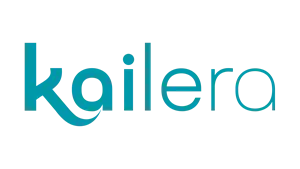

Image Credit: Yahoo Finance
Among the numerous large funding rounds this year, Kailera Therapeutics has raised $600 million in Series B proceeds to streamline weight loss therapy. The company confirmed that it will use this funding to introduce a worldwide phase 3 program for KAI-9531. The program is an investigational dual GLP-1/GIP receptor agonist. Kailera has completed the end-of-phase 2 meetings with the FDA and might begin with the late-stage development by the end of the year. Following the three studies intended to start this year. The study of one adult with a body mass index of around 35 kg/m2 and two participants with obesity or being overweight with comorbidities without or with type 2 diabetes.
The Kailera is recently studying KAI-9531 in China in partnership with Jiangsu Hengrui Pharmaceuticals. In July, in this collaboration, it was found that the injectable obesity drug mitigates average weight by 17.7% versus placebo at 48 weeks throughout all three dose levels tested. Also, 88% of treated patients showed 5% reduction in their body weight, and the other 44.4% showed a 20% weight loss.
The KAI-9531 was established and founded by Jiangsu Hengrui, which officially licensed out to Kailera at the time of the October 2024 biotech launch, with $400 million in funding in series A. Besides KAI-9531, the Chinese pharma licensed KAI-4729, a GLP-1/GIP/glucagon triple agonist and KAI-7535, a GLP-1 agonist. These two agonists are engineered to treat obesity.
Kailera claimed that the series B haul will support funding the development of these two profitable assets. Alongside, the company intends to invest in series B earnings for once-daily formulation of oral KAI-9531.
Obesity has been a profitable field for biopharma contracting and funding this year. Latest, Pfizer acquired metsera, the leading key player, for a worth $4.9 billion. The next investment was in Roche, which peaked in March and committed around $3.6 billion in numerous milestones to further collaborate with Zealand Pharma to achieve access to its amylin analogue, petrelintide. In August, Novo Nordisk and Eli Lilly also spent a lot on obesity, with $1.3 billion deal on superluminal medicines. On the other side, a collaboration with Replicate Bioscience is worth $550 million. With this successful trending fund in the obesity the obesity (weight loss) medicine and treatment market has been hyped with heavy investment and demand accordingly.